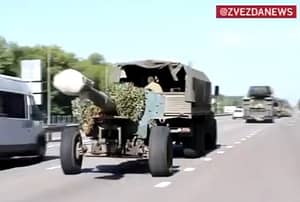The people of Central and Eastern Europe (CEE) know how to mobilize in the face of crises. The COVID-19 pandemic awakened the philanthropic potential of 35% of people in this part of Europe.
During the war in Ukraine, more than half of CEE residents donated money (50%) and medical or food supplies (40%). However, research conducted by the Social Impact Alliance for Central & Eastern Europe shows that sustaining this engagement is the biggest challenge.
The report entitled “Unlocking private capital for social good in Central & Eastern Europe” is a comprehensive analysis of the research conducted by the Social Impact Alliance for Central & Eastern Europe (an independent, apolitical think tank) between 2020 and 2023 in collaboration with key stakeholders and decision-makers in 11 countries of Central and Eastern Europe: Bulgaria, Croatia, Czech Republic, Estonia, Hungary, Latvia, Lithuania, Poland, Romania, Slovakia, and Slovenia.
Moreover, given that the war in Ukraine has often been the context, catalyst, and driving force for many businesses and individuals to start giving, the quantitative research was expanded to include this country as well.
“Over the past 4 years, we have sought answers to the question of how to unlock private capital for social good in Central & Eastern Europe (CEE) so that it supports the people and the planet on a larger scale or more effectively.
“To do this, we conducted over 7,500 interviews with the general public and over 230 expert interviews with key stakeholders from the private, public, and social sectors in 11 CEE countries and Ukraine.
“We clearly see that after approximately 30 years of a free market economy in the region, both individuals and companies now possess the means and willingness to contribute. It is a good time to start making changes” – says Anna Korzeniewska, founder of the think tank.
According to the report, most individuals and companies operating in the CEE region do not perceive social responsibility as an integral part of their lifestyle or business operations.
It is still a rather spontaneous and reactive activity, driven mainly by emotions. However, it is a good time to start making changes. The steady economic growth of the region results in a growing wealth of its society, and with the right motivation, CEE citizens would be willing to donate nearly twice as much as they do today (from EUR 2.7 billion to EUR 5.5 billion).
Key role of Western countries: USA, Canada, UK, Ireland, and Germany
The research shows that CEE citizens do not want to be left alone in developing the region’s social impact ecosystem. They clearly communicate the importance of transferring best practices from more mature markets, in particular Western European or North American countries, in tackling current social and environmental challenges.
As many as 52% of the region’s citizens believe that, considering the present geopolitical situation, the engagement of more developed countries in the development of the region is essential. They are referring to the largest and most mature markets, i.e. the USA, Canada, the UK, Ireland, and Germany.
Following the accession of most Central and Eastern European countries to the European Union, many Western donors withdrew from the region. Our research clearly indicates positive trends, but also shows that to accelerate these changes, we need e wise guidance and funding from the West, especially for infrastructure purposes, which regional donors are not yet ready to support” – says the think tank’s founder, Anna Korzeniewska.
The report clearly shows that tax and legal barriers prevent businesses, investors, and individuals from becoming more socially engaged.
The legal systems in most Central and Eastern European countries do not incentivize the social engagement of private capital owners and limit the profit-making activity and thus the self-sustainability of nonprofit organizations. At the same time, the social sector is heavily dependent on public funding, which is closely linked to reactive, dispersed, and emotional giving.
In 2022, in Poland, the largest country in the CEE region, 67% of nonprofit organizations reported difficulties with raising funds, 46% had problems maintaining liquidity, and 43% reported burnout among their leaders (ngo.pl).
“Building a resilient social impact ecosystem, capable of dealing with threats to media independence, democracy, and the rule of law, must rest on 3 strong pillars: committed donors, strong and independent civil society organizations, and supportive legislation. This is not the case in Central & Eastern Europe today. But it is a good moment to start making changes” – Anna Korzeniewska says.
Ukraine appreciates support from the West
Countries in the immediate neighborhood (mostly Central and Eastern European) as well as those further away play a big role in supporting Ukraine. The overall assessment of foreign aid is very positive.
“As many as 74% of Ukrainians rate it as good or very good. The perception of who is currently supporting the country the most is clear: the United States, the United Kingdom, and neighboring countries. At the same time, 85% agree that Western countries should provide greater assistance to Ukraine in its fight against Russia, and 69% expect more involvement” – the report says.
Ukrainians are concerned that a prolonged war could lead to a decline in foreign support, highlighting the crucial role of foreign media in covering the situation in Ukraine. As many as 84% agree with the statement that foreign media should provide more coverage of the war in Ukraine.
“We decided to expand the geographical scope of our study to include Ukraine because the war was the driving force for many businesses and individuals from the CEE region to start giving. I strongly encourage you to download the report to see what kind of support is expected from Western countries, if the needs are well understood and addressed, and how Ukrainian citizens perceive the foreign involvement” – Anna Korzeniewska explains.
The power of partnerships
Detailed analysis of the data collected in the years 2020-2023, included in the report “Unlocking private capital for social good in Central & Eastern Europe”, made it possible not only to identify barriers to the development of social engagement of specific target groups and to formulate recommendations, but also to begin developing measures for implementing the necessary changes.
“We invested 4 years in building deep knowledge and strong partnerships in the region, but further action – in education, cooperation, and advocacy – is needed to drive this systemic change with the goal of collectively strengthening the CEE social impact ecosystem. Together with our partners, strong national ecosystem players, we are ready to further lead and facilitate this process across the region, but we need the support of global partners and European institutions to do so” – concludes Anna Korzeniewska.
Developing such a deep understanding of the region’s needs would not have been possible without the support of our partners: Google.org, whose financial support made it possible to expand the geographical scope of the research from 4 to 11 countries of the CEE region and Ukraine; the law firm Dentons, which provided tax and legal support entirely pro bono; the Kantar agency, which collected field data for further analysis, and the strategic local partners and law firms, which provided valuable insights into the local context, actors, and legal environment.






Leave a Comment